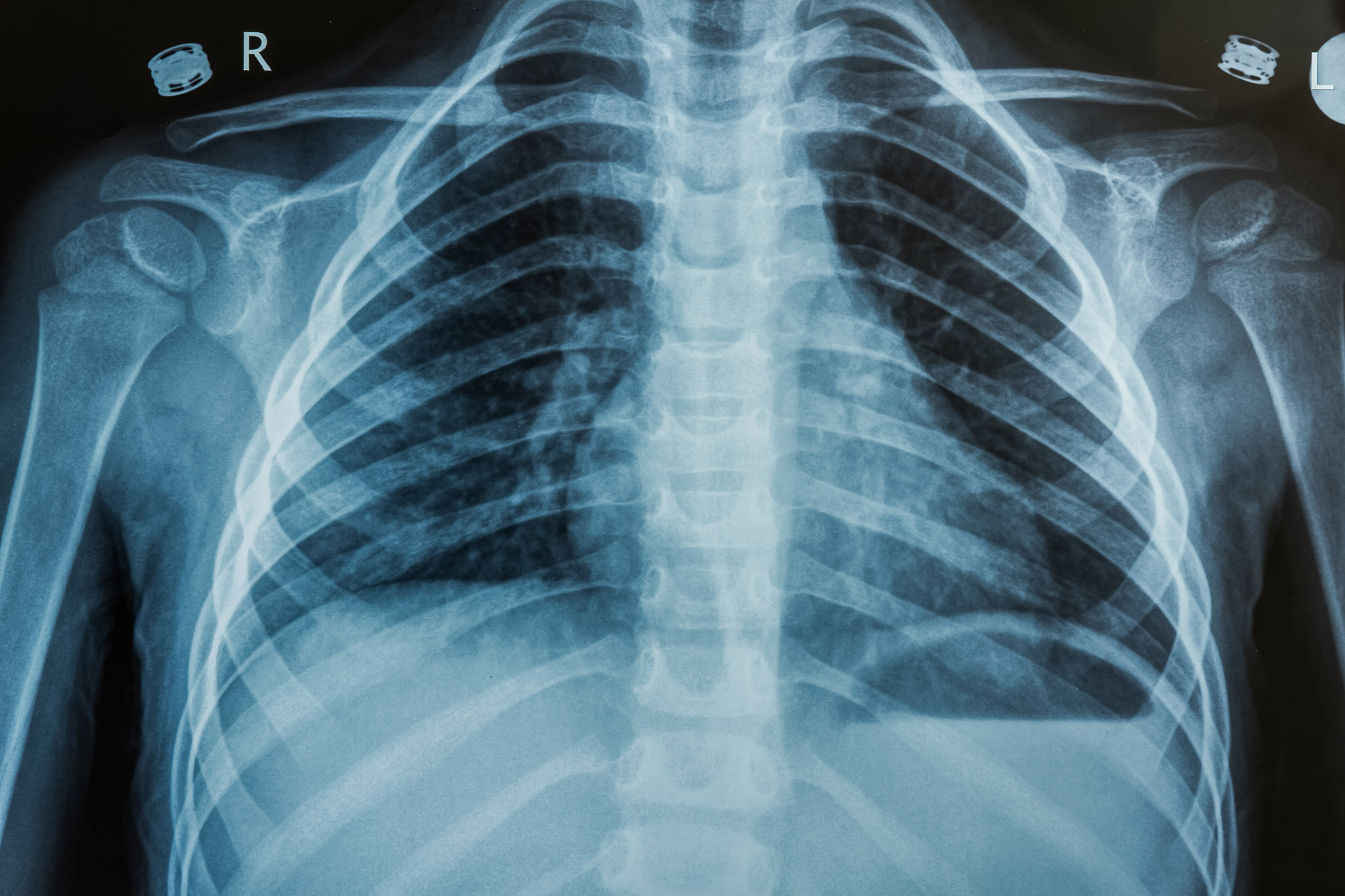Compensation Calculator for Accidents in Aberdeen
You can use this page to check how much compensation certain types of injury to body parts, listed here, tends to be awarded.
- Head, Brain, Senses, Neck, Spine, Back, Torso, Organs, Arms, Shoulders, Hands, Hips & Pelvis, Legs, Feet
Head
Skeletal/skull injuries
Fractures of the frontal facial bones £15,500 – £24,100
Multiple facial fractures £9,750 – £15,750
Fractures of Nose or Nasal complex £1,125 – £15,200
These vary from simple fractures of the nose with full recovery to serious fractures involving multiple surgeries and/or permanent disability in breathing.
Fractures of cheekbones £1,550 – £10,350
These range from simple fractures from which a complete recovery is possible to multiple fractures requiring surgery and which involve some level of disfigurement.
Fractures of jaws – £4,250 – £30,000
These range from simple fractures to serious multiple fractures which require prolonged treatment and permanent consequences including pain when eating restriction in eating and the risk of arthritis.
Damage to teeth £720 – £7,500
This depends on the placement of the teeth and the requirement for dental surgery. Front teeth attract a higher level of award.
Facial Disfigurement.
The law draws a distinction between male and female victims here. Women are generally awarded a higher level of compensation. Age is also taken into consideration. The psychological impact will also be taken into account.
Females:
- Very Severe Scarring – £31,750 – £64,000
- Less severe scarring – £20,000 – £31,750
- Significant Scarring – £11,800 – £19,750
- Less significant scarring – £2,600 – £9,000
- Trivial Scarring – £1,125 – £2,300
Males:
- Very Severe Scarring – £19,500 – £43,000
- Less severe scarring – £11,800 – £19,750
- Significant Scarring – £6,000 – £11,800
- Less significant scarring – £2,600 – £6,000
- Trivial Scarring – £1,125 – £2,300
Brain
Very Severe Brain Damage
£185,000 – £265,000
In these cases, the injured party will offer little, if any, response to their environment, little or no language function and there will be the need for permanent full-time care. They may nonetheless still exhibit an ability to follow basic commands.
The level of award will be influenced by the degree of ‘insight’ the person retains, their life expectancy following the injury and the extent of their physical limitations.
Moderately Severe Brain Damage
£144,000 – £185,000
Persons who fall into this bracket will be very seriously disabled. They will depend greatly on others for care, normally professional. There may be physical disabilities (eg. Paralysis of the limbs) or cognitive (e.g. impairment of intellect and personality) The court will consider, among other things: the life expectancy of the sufferer, the extent of their physical limitation, the degree to which they are dependent on others, their ability to communicate, abnormalities in their behaviour and whether or not epilepsy is a factor.
Moderate Brain Damage
There are three sub-categories here:
£98,500 – £144,000
This will be awarded where there is moderate/severe reduction in intellect, a change in the persons personality, detrimental effect to the senses and no prospect of employment.
£59,500 – £98,500
This will be awarded in slightly less severe cases. There will be a moderate/modest reduction in intellect, the sufferers ability to work is greatly reduced or removed and there is a risk of epilepsy.
£28,250 – £59,500
In these cases there will be some effect on memory and concentration, the sufferer’s ability to work is reduced and there is a small risk of epilepsy. In these cases there is normally little or no dependence on others.
Minor Brain Damage
In these cases, the injured person will normally have made a good recovery and regained most of their faculties. They will be able to resume work and their social life with relative ease. There will be some minor ongoing difficulties such as poor concentration and changes in mood. These factors will interfere with the enjoyment of work, leisure and social function. The court will take into account: the severity of the injury which caused the brain damage, the extent to which any disability is permanent, the extent of any change in personality and the whether or not depression exists.
Minor Head Injury
£1,450 – £8,400
If there is no brain damage, or minimal brain damage, this will be an appropriate award. The court will take heed of the extent and severity of the initial injury, how long recovery takes and ongoing symptoms (such as headaches).
Epilepsy
If epilepsy is a factor, or is a direct result of the injury, then the court can make an additional or a stand alone award.
Epilepsy Grand Mal
£66,000 – £98,500
Epilepsy Petit Mal
£36,000 – £86,000
The court will take into account: the extent to which attacks are capable fo being controlled by medication; the effect this mediation has on the sufferers life, the effect the epilepsy has on their work/social life; behavioural problems and the medical prognosis.
If you or a loved one has suffered the injuries described above, and someone else is to blame, contact us today.
Senses
Compensation for injuries to sight and hearing.
These types of injury rank among the most serious and most detrimental to life. The injury suffered does not need to be particularly severe to damage sensitive organs such as the eye and the inner ear.
Compensation for Blindness
Total Blindness and Deafness
In the region of £265,000
These injuries are must, in the eyes of the law “be considered as ranking with the most devastating injuries”.
Total Blindness
In the region of £175,000
Again, this is among the most serious of all imaginable injuries. As such compensation is particularly high.
Loss If Sight In One Eye And Reduced Vision In The Other Eye.
£63,000 – £118,000
This will be awarded if there is a risk of deterioration in the remaining ‘good’ eye.
£42,000 – £69,500
This is considered appropriate where there is reduced vision in the remaining eye and there is additional damage to the sight, e.g. double vision.
Total Loss Of One Eye
£36,000 – £43,000
The court will take into account the age of the sufferer and the ‘cosmetic’ effect of the injury.
Loss Of Sight In One Eye
£32,250 – £36,000
Serious Loss of Vision
£15,500 – £25,750
This is awarded if there is serious but not total loss of vision and there is no risk of loss of vision in the other eye/ There may be continuing double vision.
Minor, Permanent Impairment Of Vision In One Eye
£8,250 – £13,750
Minor Eye Injuries
£2,600 – £5,750
Transient Eye Injuries
£1,450 – £2,600
These are cases in which there is normally complete recovery within a relatively short time frame.
Compensation for Deafness
In law, deafness means total or partial hearing loss. When arriving at a conclusion about a potential award, a court will consider: whether the injury is ‘instant or occurs over a period of time; whether the injury is suffered at a young age (and thus affects development) or is suffered in later life; whether there is an affect on balance.
Total Deafness and Loss of Speech
£72,000 – £92,000
This level of compensation will be awarded where deafness has occurred at an early age and has had an effect on development.
Total Deafness
£59,500 – £72,000
The higher end of this bracket will be awarded where there is tinnitus and/or a speech deficit
Total Loss of Hearing in One Ear
£20,500 – £30,000
The higher end of this bracket will be awarded where there are symptoms such as dizziness or tinnitus
Partial Hearing Loss
£4,850 – £30,000
This is a wide bracket, and usually covers cases where there has been exposure to noise over a prolonged period. Existence of tinnitus will be taken into account, as will the age of the sufferer.
Mind
General Psychiatric Damage
£1000 – £76,000
There is obviously wide scope in terms of this type of damage. Compensation can vary wildly depending on a number of factors. The law breaks compensation for general psychiatric injuries down into 4 main categories: severe, moderately severe, moderate and minor.
The court will take into account the following factors:
- The injured persons ability to live and work
- The effect on their personal relationships
- The potential success or otherwise of treatment
- Future vulnerability to, for example, further injury.
- The medical prognosis
- The extent to which medical help has been sought.
- Whether the injury results from sexual or physical abuse and whether or not it resulted from a breach of trust. If this is the case, the court will also consider the relationship between the victim and the abuser, the nature of the abuse, the symptoms it has caused and the duration of the abuse.
Clearly there is scope for huge difference of opinion on the appropriate level of compensation. Contact our personal injury experts to day for more precise guidance on your personal injury claim for psychiatric injury.
Compensation for PTSD
Post Traumatic Stress Disorder – PTSD
PTSD is legally defined as a symptomatic response to psychologically distressing event which causes “intense fear, helplessness and horror”. These symptoms include, effects on breathing, pulse, bowel/bladder control, the re-experience of the event, anger issues, difficulty in sleeping and concentrating and being easily startled.
Severe
£40,000 – £66,000
In these cases, the sufferer will be prevented from returning to anywhere near their pre-trauma level. Every aspect of their life is affected.
Moderately Severe
£15,250 – £40,000
Here, there is more scope for recovery than above, and a better medical outlook. There will however be significant disability for the foreseeable future.
Moderate – Minor
£2,600 – £15,250
In these cases, there is normally complete/almost complete recovery and there will be no normally be a continuing disabling effect.
Chronic Pain
Compensation can also be awarded for chronic pain conditions. If you have suffered an injury which has caused, exacerbated or caused a recurrence of a chronic pain condition, you may be entitled to compensation.
Compensation for Chronic Pain Syndrome
Awards for chronic pain syndrome vary from £7,000 to £42,000 depending on the severity.
Compensation for Fibromyalgia
£22,350 – £43,000
Compensation for Chronic Fatigue Syndrome
In the region of £32,750
Compensation for Reflex Sympathetic Dystrophy (complex regional pain syndrome)
£16,700 – £66,000
Compensation for somatoform disorder
In the region of £30,000
If you or a loved one has suffered the injuries described above, and someone else is to blame, contact us today.
Neck
Severe Neck Injuries
In the region of £97,500
Neck injuries associated with paraplegia or neck injuries where there is no movement in the neck after a period of years and there are associated incurable headaches.
£43,000 – £86,000
Severe injuries which give rise to disability, but are not as severe as those found above.
In the region of £36,000
Injuries which cause severe damage to soft tissue and/or tendons in the neck. These injuries will cause ‘significant disability of a permanent nature’. The court will take into account the extent and length of symptoms, and the medical outlook/.
£16,400 – £21,600
Injuries such as fractures or dislocations which cause severe and immediate symptoms. These injuries will necessitate the fusion of the spine and leave the sufferer with severely impaired function.
Moderate Neck Injuries
£9,000 – £16,4000
Injuries involving whiplash or other wrenching type injuries which result in serious pain and reduction in movement. These types of injury will also result in stiffness and discomfort and the possible need for surgery.
£5,150 – £9,000
Injuries which worsen or cause a recurrence of a pre-existing condition. There is normally a return to full function or ‘nuisance’ levels of pain and discomfort within a few years. This will also apply to whiplash injuries of a minor nature.
Minor Neck Injuries
£875 – £5,150
Minor soft-tissue injuries from which a full recovery is possible within 1-2 years. The court will take into account the recovery period when deciding upon an appropriate level of compensation.
Whiplash compensation
£9,000 – £16,400
Cases which result in serious limitation of movement, permanent or recurring pain, ongoing stiffness or discomfort
£5,150 – £9,000
Whiplash injuries where the period of recovery is protracted and there is a vulnerability to further injuries.
£2,850 – £5,150
Whiplash injuries where a full recovery takes place within around two years
£875 – £2,850
Whiplash injuries where there is fully recovery between a few weeks and a year.
If you or a loved one has suffered the injuries described above, and someone else is to blame, contact us today.
Spine
Compensation for Quadriplegia
£201,500 – £265,000
Compensation for Paraplegia
£144,000 – £186,500
Back
Severe back injury compensation
£66,000 – £111,000
Injuries of the most sever nature but which fall short of paralysis. These cases normally involve other, related consequences such as impotence or incontinence.
In the region of £53,000
This level of compensation is awarded specifically to back injures which take them outside the normal context of what we would consider a ‘back’ injury. These are cases that involve or lead to bladder impairment, sexual problems, scarring and the possibility of future complications.
£25,500 – £45,750
Injuries which lead to disc lesions, fractures of discs or of vertebrae which lead to ongoing disabilities and discomfort. These may also be associated with continuing pain, discomfort, loss of agility, sexual problems, arthritis and loss of employment.
Moderate back injury compensation
£18,250 – £25,500
This bracket contains a wide variety of injuries. Normally, this level of compensation will be awarded if there is a substantial risk of osteoarthritis and continuing pain and discomfort. There may also be impairment of sexual function and/or spinal fusion.
£8,250 – £18,250
This bracket includes many frequently encountered back injures such as disturbance to the ligaments and muscles. These are normally soft-tissue injuries. The court will consider the severity of the original injury and the likelihood of permanent or chronic disability.
Minor Back Injuries
No minimum – £8,250
All other sprains, strains and soft-tissue injuries from which total or almost toal recovery is expected within a period of up to five years.
Torso
Compensation for Chest Injuries
£66,000 – £98,500
This level is appropriate where there is total removal of a lung and/or damage to the heart. Tere is normally also prolonged pain and permanent scarring.
£43,000 – £66,000
This level of compensation will be awarded where there is traumatic injury to the lungs and/or heart which results in permanent damage, disability and a reduction in life expectancy.
£20,500 – £36,000
This bracket applies where there is damage to the lungs causinf some ongoing disability.
£8,250 – £11,800
This will be awarded for tissue injuries which have no permanent effect on the lung itself.
£3,500 – £8,250
In cases of smoke/toxic fume inhalation, this will be an appropriate award. There will not normally be any permanent effect.
£1,450 – £3,500
These cases will involve injuries to the chest/lung from which a full recovery is made.
Up to £2,600
Fractures etc, and other impermanent injuries.
If you or a loved one has suffered the injuries described above, and someone else is to blame, contact us today.
Organs
Compensation for Kidney Injuries
£111,000 – £138,000
Serious damage to, or loss of, both kidneys.
Up to £42,000
This will be awarded where there is a ‘significant risk’ of future urinary tract infection or loss of the kidney’s natural function.
£20,250 – £30,000
Loss of one kidney with no damage to the other.
Compensation for Bowel Injuries
Up to £98,500
If there is total loss of natural function and dependence on colostomy, this will be the level of award. Age is taken into consideration here.
£29,250 – £45,750
In cases of severe abdominal injury which impairs the function of the bowels and necessitates temporary colostomy this will be the level of award. There may also be restriction on the types or levels of employment and on the diet.
£8,250 – £16,000
This level of compensation is appropriate where there is some permanent damage but normal function eventually recovers.
Compensations for Bladder Injuries
Up to £92,000
This will be considered appropriate where there is complete loss of function and control.
£42,000 – £52,500
This level of compensation will be awarded where there is serious impairment of bladder control and some associated pain and incontinence.
£15,400 – £20,500
In these cases there will be some long-term interference with natural function but there will be an almost complete recovery.
Compensation for Hernia Injuries
Hernias can be common injuries among manual professions. If you have been injured at work, click here for more advice.
£9,750 – £15,850
For this to be considered appropriate, there will be continuing pain and/or limitation to the enjoyment and participation in physical activity, sport and work.
£4,600 – £6,000
If the hernia is a “direct inguinal hernia” and there is some risk of recurrence, this will be the appropriate award.
£2,200 – £4,850
This is the level of award for an uncomplicated inguinal hernia with no associated injury or permanent damage.
If you or a loved one has suffered the injuries described above, and someone else is to blame, contact us today.
Lungs
Lung disease is frequently related to workplace injuries. These can take many years to come to light, particularly those involving asbestos and other toxic materials commonly found in the workplace. [LINK] These condition have a tendency to worsen over time and the level of award often reflects the medical outlook.
The below awards apply no matter the source of the illness. Asbestos related illness is dealt with here [LINK].
£66,000 – £89,000
This level of award is normally considered appropriate for a young person with serious disability where there is a probability of the condition becoming progressively worse leading to early death.
£51,500 – £66,000
If the sufferer develops lung cancer which is severely detrimental to their quality of life, the court will consider an award in this bracket.
£36,000 – £51,500
For diseases such as emphysema which cause the lung function to deteriorate and impairs breathing or causes coughing and/or sleep disturbance. There may also be a reduction in the type and level of possible physical activity and employment prospects.
£20,500 – £36,000
If the injury/illness requires the use of an inhaler, causes difficulty in breathing and there is an uncertain or bleak medical prognosis, the court will make an award of this level. There also requires to be an effect on social and working life.
£13,650 – £20,500
This level of award is made where there is breathlessness/wheezing with an effect on social life. There will also be varying levels of anxiety about the future.
£7,000 – £13,650
If there is breathlessness but no effect on the sufferers working life and there is a likelihood of total or almost total recovery within a few years.
£1,450 – £7,000
This award is made for less serious cases, where there is almost total recovery within a few months. Aggravations of conditions such as bronchitis fall into this bracket.
If you or a loved one has suffered the injuries described above, and someone else is to blame, contact us today.
The rules relating to claims for asbestos-related conditions have changed in recent years. The UK supreme court decided in late 2011 that those who had been contracted pleural plaques as a result of exposure to Asbestos had a right to compensation. The rules for asbestos personal injury claims are slightly different to other types of personal injury claim to reflect their unique nature.
If you have suffered, or are suffering from, any of the following: pleural plaques, pleural thickening, mesothelioma, lung cancer or asbestosis then you can make a claim.
You can make a claim for asbestos related personal injury even if:
- The exposure which caused the injury occurred many years ago;
- You worked for numerous employers who exposed you to asbestos;
- Your employer (or employers) are no longer trading;
- You were a contract/self-employed at the time of exposure.
You must, however, bring the action within three years of being diagnosed with your condition. In some cases, asbestos related health problems can take decades to develop. Aberdeen and the Clyde Valley in the 50’s. 60’s and 70’s was a hive of heavy industry and many men were exposed to asbestos in the shipyards, rail-yards, construction and manufacturing industries. If you were (or are) employed in such an industry then contact us today for no obligation advice on making a claim for asbestos related personal injury.
It is not known exactly how mesothelioma and other conditions are caused. The best guess of the medical and legal professions is that exposure to a single fiber of Asbestos may be sufficient to lead to the development of a serious asbestos related medical condition. As such, it may be possible to contract these diseases over a relatively short period. In some cases, family members have contracted the condition having been exposed to the clothes of a family member who worked with asbestos. In such cases, the afflicted family member may also be able to claim compensation.
The most serious of these conditions is mesothelioma. It is often fatal within a few months. If you have been diagnosed with mesothelioma, you should seek advice about bringing a claim at your earliest convenience. If you have lsot a family member to mesothelioma, we may be able to claim compensation for you on their behalf.
If you worked for several employers, each of whom negligently exposed you to asbestos, then your claim will be directed against them proportional to the time you spent working there.
The current compensation guidelines are:
Mesothelioma
£35,000 – £83,750
The duration of the pain and suffering, and the life expectancy after diagnosis influence the level of the award in these cases. The court will also consider the remaining lung function and the quality of life.
Lung Cancer
£51,500 – £66,000
The court will consider the same factors as those for Mesothelioma.
Asbestosis
£31,500 – £69,500
While this may be symptomless in the early stages, it can lead to severe symptoms including breathlessness. The current guidelines state that a reduction in respiratory capacity of 10%-20% would attract an award of £46,000
Pleural Thickening
£25,250 – £51,500
Other illnesses
£4,350 – £7,250
In cases where there is no risk of mesothelioma, lung or other cancers, or asbestosis, this will be considered an appropriate award.
If you or a loved one has suffered the injuries described above, and someone else is to blame, contact us today.
If you have contracted food poisoning, or suffered another, non-traumatic injury, you may still be able to claim compensation. Such cases normally arise were there has been formal travel. If you have been abroad on holiday [cross link w/ claims abroad page] and suffered from food poisoning or disease-related injury or loss, you may be able to claim compensation.
The level of compensation obviously depends on whether or not the illness is temporary or leads to a permanent or long standing complaint.
The levels of compensation you might be able to expect are as follows:
£25,250 – £34,500
Severe toxicosis leading to severe pain, diarrhoea, sickness & vomiting and fever. In most cases, there will have been a period of hospitalisation for weeks or months. There will also need to be ongoing symptoms such as irritable bowel syndrome or incontinence and these will have had a detrimental effect on the life and work of the sufferer.
£6,300 – £12,600
This level of compensation will be awarded for relatively brief, but serious, episodes of food poisoning. Vomiting and diarrhoea will pass over a period of 2-4 weeks, but there will be ongoing disturbance of bowel function and enjoyment of life. If the symptoms are more severe, the court may make an award between the top of this bracket and the bottom of the one above.
£2,600 – £6,300
Food poisoning which causes significant discomfort, cramping, alternation of bowel function and fatigue. There must also be hospitalisation for a few weeks but complete recovery within a few year.
£600 – £2,600
The most minor cases. There will normally have beene pain which lasts for a few weeks, accompanied by vomiting and diarrhoea.
Shoulder
Shoulder Injury Compensation
Severe shoulder injuries
£12,600 – £31,500
Injuries which result in significant disability. Often associated with neck injuries.
Serious Shoulder Injuries
£8,400 – £12,600
Injuries such as shoulder dislocations and/or damage to the brachial plexus which cause shoulder and neck pain, ‘tingling’ in the arms or hands and reduction in the strength and agility of the arm.
Moderate Shoulder Injuries
£5,150 – £8,400
Frozen shoulders and similar injuries. There will be related limitation of movement and symptoms which persist for around two years.
Minor Shoulder Injuries
£2,850 – £5,150
Painful soft-tissue injuries where there is complete recovery within a period of two years.
Arms
Amputation Injury Compensation
Loss of Both Arms – £158,000 – £197,000
Since helplessness is often the result, the compensatory award is quite high.
Loss of One Arm
Over £90,000
If the arm is amputated at the shoulder.
£72,000 – £86,000
For amputations above the elbow. The shorter the stump, the more difficult it is to attach a prosthesis. As such, the closer the amputation is to the shoulder, the higher the award.
Below-elbow amputation – £63,000 – £72,000
If the amputation is through the forearm, and there is residual “phantom” pain, the award will be at the higher end of this bracket. The court will also consider whether or not the amputation was of the dominant arm.
Other Arm Injuries
Severe injuries
£63,000 – £86,000
These are injuries which do not require amputation but cause such serious disability that the sufferer is little better off than had the arm been amputated.
£25,750 – £39,300
Injuries which result in “permanent and substantial disablement”. This bracket is awarded in cases in which there is ongoing impairment of function and/or substantial cosmetic damage.
£4,350 – £25,750
Injuries in this wide bracket range from simple fractures from which full recovery is expected, up to serious fractures of several bones in one or both arms. Cases at the higher end of the bracket will be cases in which there is not total recovery.
Elbow Injuries
£25,750 – £36,000
This bracket includes injuries which result in serious disability.
£10,300 – £21,000
Less serious injuries which cause loss of function but to not carry with them permanent disability or require surgery.
Up to £8,250
Injuries of a minor nature – joint and tendon injuries, simple fractures. Normally this type of award will be made where there is no permanent reduction in the function of the elbow.
Wrist Injuries
£31,300 – £39,300
Injuries which result in a complete loss of wrist function.
£16,100 – £25,750
Injuries which leave some residual movement, but result in a permanent disability.
£8,250 – £16,100
Less severe injuries but those which result in permanent disability or ongoing pain.
£2,300 – £4,850
Injuries such as fractures which cause some immediate pain and suffering and may necessitate some time in plaster, but from which complete recovery is possible.
Hands
Hand Injury Compensation
Total loss of use of both hands – £92,000 – £132,000
Injuries which render the hands little more than useless. If there is no prospect of an effective prosthesis, awards will be near the top of the bracket.
Serious damage to both hands – £36,000 – £72,000
Total or effective loss of one hand – £63,000 – £72,000
The upper end of this bracket will be awarded where the hand was the dominant one. This will be awarded where the hand is amputated or crushed and as such is beyond use.
Serious Hand Injuries – £19,000 – £40,650
Injuries which reduce the functional ability of the hand by about 50%. This may also be the award for amputation of part of the hand.
Less Serious Hand Injuries – £9,500 – £19,000
Moderate/minor hand injuries £600 – £8,7000
Crushing injuries, penetrating wounds, soft-tissue injuries and lacerations. The court will take into accounts whether or not surgery is necessary and the medical prognosis.
Finger Injuries
Amputation of Index, Middle and/or Ring Finger – £40,650 – £59,500
This will be awarded where the above results in the hand being of little use and there is reduction in grip strength.
Severe Fractures of fingers – up to £24,100
The higher level of award will be made where there is substantial deformity or amputation is required.
Injuries to the fingers
£2,600 – £23,000
The award here will depend on which finger is injured (the thumb and index/middle fingers obviously attract higher awards), the severity and nature of the injury, whether surgery is required, the prognosis, recovery time and whether or not amputation is required.
If you or a loved one has suffered the injuries described above, and someone else is to blame, contact us today.
Vibration white finger is an unfortunately common complaint which arises as a result of exposure to vibration. Vibration white finger (or VWF) is a progressive condition and its development is influenced by a number of factors including the length of exposure, the duration of exposures and the severity of the offending vibration.
In making compensation awards for vibration white finger, the law uses a scale system. Each hand and finger is assessed separately. The court also takes into account the level of disablement of each finger and the impact the condition will have on the employment prospects of the sufferer.
The brackets are as follows
Most serious: £20,750 – £25,250
This will be awarded where the condition can be said to affect an entire hand, not just individual fingers.
Serious: £11,000 – £20,750
Moderate: £5,7000 – £11,000
Minor £2,000 – £5,7000
This category contains a broad group of injuries grouped together. They are categorised in this way as they are more than likely to be the result of exposure to certain conditions at work.
These injuries normally include tendon and joint inflammation, carpal tunnel syndrome, “tennis elbow, “golfers elbow” and other repetitive strain injuries.
The court will consider the following in making an award:
- Is the injury on one or both sides?
- The level of the symptoms – swelling, tenderness etc
- The ability to work
- Whether surgery is required.
The awards are as follows:
Permanent disability on both sides which requires surgery and results in loss of employment. – £14,350 – £15,200
Ongoing but changing symptoms – £9,750 – £10,750
Symptoms which clear up within two years £5,700 – £6,300
Complete recovery in a relatively short period. £1,450 – £2,300
Hips & Pelvis
Severe pelvis injuries
£51,500 – £86,000
Extensive fractures of the pelvis coupled with other injuries such as dislocation of the lower back joint, a ruptured bladder or other associated injury which necessitates spinal fusion. These injuries are normally associated with residual disability. There may also be a lack of bladder control, loss of sexual function and perhaps difficulty in giving birth.
£40,650 – £51,500
Injuries of a less severe nature than above, but which are markedly worse than those below.
£27,750 – £34,500
This bracket is normally composed of injuries which may result in a hip replacement now or in the future. Again, this is a wide category.
Moderate Hip Injuries
£17,500 – £25,750
Significant injury but without any permanent disability and little or no future risk of surgery etc.
£8,250 – £17,500
Injuries involving hip replacement. Those near the top of the bracket will be cases in which there has been a successful hip replacement, or where hip replacement will be necessary in the near future.
Up to £8,250
Cases involving significant injury but from which there is complete recovery and no residual disability.
Legs
Leg injuries will almost certainly cause severe loss of quality of life from anywhere to a short period to permanently. The loss of mobility may also reduce the sufferer’s employment prospects.
As such, the compensation awards for serious leg injuries are among the highest awarded.
Amputations
Where both legs are amputated above the knee – £158,000 – £185,000
The higher the amputation is on the leg, the greater the award of compensation.
Below knee amputation of both legs – £132,000 – £177,500
Again, the higher the amputation is on the leg, the greater the level of award.
Above knee amputation of one leg – £63,000 – £92,000
The award will depend on the place of amputation, the existence of “phantom” pains, the complication of fitting a prosthesis and the existence of side effects.
Below knee amputation of one leg – £60,000 – £86,000
Straightforward amputations will attract an award near the bottom of the bracket. Amputations following an accident will be nearer the top. Also near the top wil be cases where the amputation is necessary some years after the original incident.
Severe Leg Injuries.
£63,000 – £89,000
Some injuries, although they do not require amputation, are so devastating as to merit similar levels of compensation. Very serious flesh wounds, injuries which shorten the leg and injuries where bone grafts are necessary are included in this bracket.
£36,000 – £55,500
This bracket includes injuries which result in serious mobility problems such as the need for crutches for the rest of the sufferer’s life. Injuries which lead to deformity and reduction of movement are also in this bracket. Injuries which cause arthritis may also be included in this bracket.
£25,750 – £36,000
Serious joint, ligament or tendon injuries which result in loss of stability, require lengthy hospital treatment, long recuperation periods and/or cause arthritis are included here. A combination of these factors will result in a higher award.
Moderate
£18,250 – £25,750
Severe, complicated or multiple fractures. The court will take into accounts the period off work, the risk of further injury, the success of surgery and repair work, the remaining movement of the joints, the sufferers stability and any scarring which has occurred.
Less serious Leg Injuries
£11,800 – £18,250
Injuries where the sufferer is left with a permanent limp, loss of mobility, discomfort or where a pre-existing condition is worsened.
Up to £9,200
Fractures and soft tissue injuries. At the top of the bracket are fractures from which a complete recovery is made.
Knee Injuries
Severe Knee Injuries – £45,750 – £63,000
Serious injuries which cause severe disruption of the joint and require lengthy treatment and cause considerable pain.
£34,250 – £45,750
Fractures which extend into the knee joint causing permanent pain, a limp, reduction of mobility and causing the risk of osteoarthritis.
£17,500 – £28,500
Less serious injuries than those above, but injuries which nonetheless result in serious pan and limitation of mobility. Awards at the top of the bracket will be made where there is a risk of further reduction in the condition of the knee.
Moderate Knee injuries.
£9,750 – £17,500
Injuries involving dislocation, torn cartilage or ligaments and/or result in instability or weakness.
Up to £9,000
Injuries involving twisting, bruising and lacerations. If the recovery is complete, the award is unlikely to exceed £3,750
Ankle Injuries
£32,750 – £45,750
Injuries which will attract this level of award are uncommon. They will normally be injuries which result in deformity and cause the risk of future amputation. Serious injuries at a young age may also attract this level of compensation.
£20,500 – £32,750
Injuries which require an extensive period of treatment or a lengthy spell in plaster. Injuries near the top end will require the insertion of a pin or plates.
£8,700 – £17,500
Fractures etc. which cause instability, scarring and awkwardness when walking.
Up to £9000
Less serious ankle injuries involving soft-tissue damage or fractures, sprains or strains. If recovery is complete within a year, the award will probably not be over £3,600.
Feet
Amputation of both feet – £111,000, £132,000
Amputation of one foot – £55,000 – £72,000
Very severe foot injuries
£55,000 – £72,000
Injuries within this bracket will cause permanent, sever pain and serious permanent disability.
Severe
£30,000 – £44,200
Fractures of both feet or heels with a substantial reduction in mobility. This level may also be awarded for exceptionally serious injuries to both feet.
Serious
£16,400 – £25,750
The top end of this bracket is reserved for serious injuries which cause permanent disfigurement and cause permanent pain or irritation.
Moderate
Up to £16,400
This category is a wide one, and is reserved for less serious injuries. Simple fractures, ligament damage and ongoing symptoms such as pain and limping are within this bracket. If recovery is completed within a year and award of £4,350 will be made.
To further discuss any of these estimates please call on 01224 980 625 to speak to one of our specialists.









